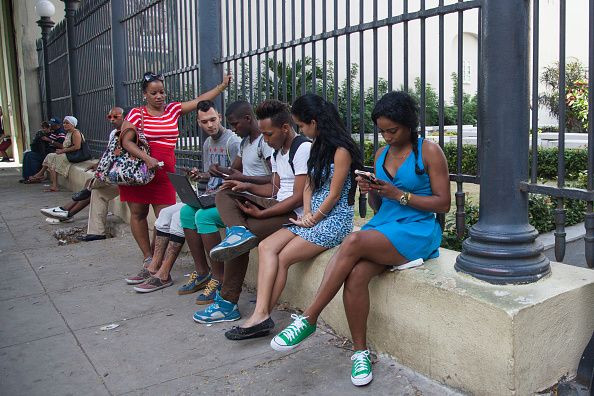State Department Wants Cuba To Improve Internet Connectivity, Sets Up Task Force

In accordance with President Donald Trump’s Cuba policy, which was summarized in the June presidential memorandum, the State Department created a Cuba Internet Task Force to "promote the free and unregulated flow of information” in the nation.
Due to tight government restrictions and lack of funding, the internet in Cuba has not percolated to the general public, due to which only about 40 percent of the population has access to the internet. Mobile internet is still not available to the people, but this might change as Cuba’s state telecommunications company Etecsa plans to provide the facility this year.
The State Department said: “The Cuba Internet Task Force is composed of U.S. Government and non-government representatives to examine technological challenges and opportunities for expanding internet access in Cuba,” and the team will meet for the first time Feb. 7.
The Presidential National Security Memorandum, which was issued in June, stated that the Cuba Internet Task Force will comprise “relevant departments and agencies, including the Office of Cuba Broadcasting, and appropriate non-governmental organizations and private-sector entities,” and examine opportunities “that encourage freedom of expression through independent media and internet freedom so that the Cuban people can enjoy the free and unregulated flow of information.”
Cuba’s Communist Party newspaper Granma slammed the formation of the Cuba Internet Task Force and said it was "destined to subvert Cuba's internal order."
The newspaper added: “In the past, phrases such as ‘working for freedom of expression’ and ‘expanding Internet access in Cuba’ have been used by Washington to mask destabilizing plans with the use of new technologies.”
Granma cited the example of ZunZuneo project, which was a U.S. state-owned social networking service aimed at Cuban users. The newspaper said the real purpose of ZunZuneo was to promote “actions against the internal order of the country.”
Many analysts believe that the effect of the Cuba Internet Task Force might be counterproductive.
Michael Bustamante, an assistant professor at Florida International University, said: "By casting the issue of internet access in an explicitly political frame, it will only create greater obstacles for those U.S. telecom companies that have made inroads toward partnerships with the Cuban side. … Measures like these strengthen the hand of those in Cuba for whom the prospect (and reality) of external meddling justifies maximum caution with respect to internal reform," Reuters reported.
Granma quoted Union of Journalists of Cuba vice president, Rosa Miriam Elizalde as saying: “2017 will be remembered as the boom in the expansion of access to the network in our country, with 40 percent of Cubans connected to the Internet, 37 percent more than in 2010, and the naturalization of the Internet connection in urban spaces from one end of the Island to the other.”
The Caribbean island nation’s media is controlled by the government and the embargo expands to telecommunications as well. Google submitted a plan in 2015 to expand access in the country, however, it was rejected by the government. In July 2015, Etecsa set up public Wi-Fi access in plazas, commercial centers, and parks. Currently, there are 500 hotspots in the country.
But, the internet is still expensive and many sites are censored. The hourly tariff for Wi-Fi access is $1.50, which is 5 percent of the average monthly salary.
© Copyright IBTimes 2024. All rights reserved.





















